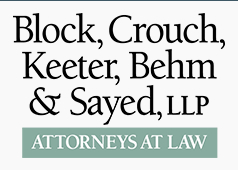Collaborative Divorce
Collaborative Divorce is an alternative approach to the traditional (adversarial) divorce.
It is a cooperative process that includes a commitment by both parties to resolve their issues outside of the court system. The process is defined by both parties’ commitment to engage in a transparent and honest exchange of information and to respect the priorities and needs of both spouses and children. Collaborative practice takes place outside of the court system and involves attorneys for each party and if necessary, a divorce team of financial experts and child specialists who assist the family in navigating through decisions about their post-divorce options and financial futures. Parties, not judges, control the outcome of future relationships and financial pictures.
The Collaborative approach is confidential and private and prevents personal information and relationships from being aired in a public courtroom. Collaborative law is touted as a smart way to manage the turmoil that often accompanies adversarial litigation and minimizes the negative effects that divorce can have on children, finances, work relationships, and family owned businesses. Court battles focus on destructing the past and builds resentment and hostility by declaring a “winner” and a “loser”. The Collaborative approach assists people in moving on with their lives, rather than perpetuating an endless battle that often results in costly casualties and unintended collateral damage. Each party is represented by his or her own attorney who is fully committed to resolving conflict and reaching agreements to issues and concerns through a series of face-to-face meetings. The parties, their attorneys, and any other financial or mental health experts that may be needed work together to explore the needs of the parties and children, the interests and priorities of both spouses, and focus on reaching meaningful lasting agreements regarding all issues including how to separate, property division, support, child custody and parenting time. The process operates on the parties’ timetable rather than the court’s calendar. When parties are invested in the outcome, the resolution tends to be a long-lasting resolution.
